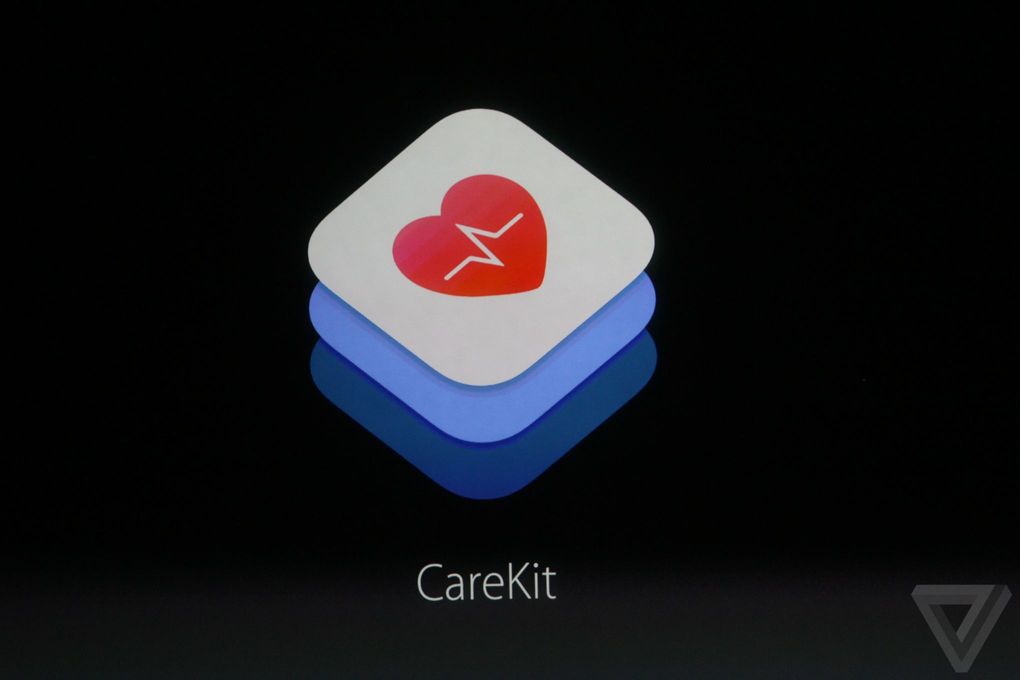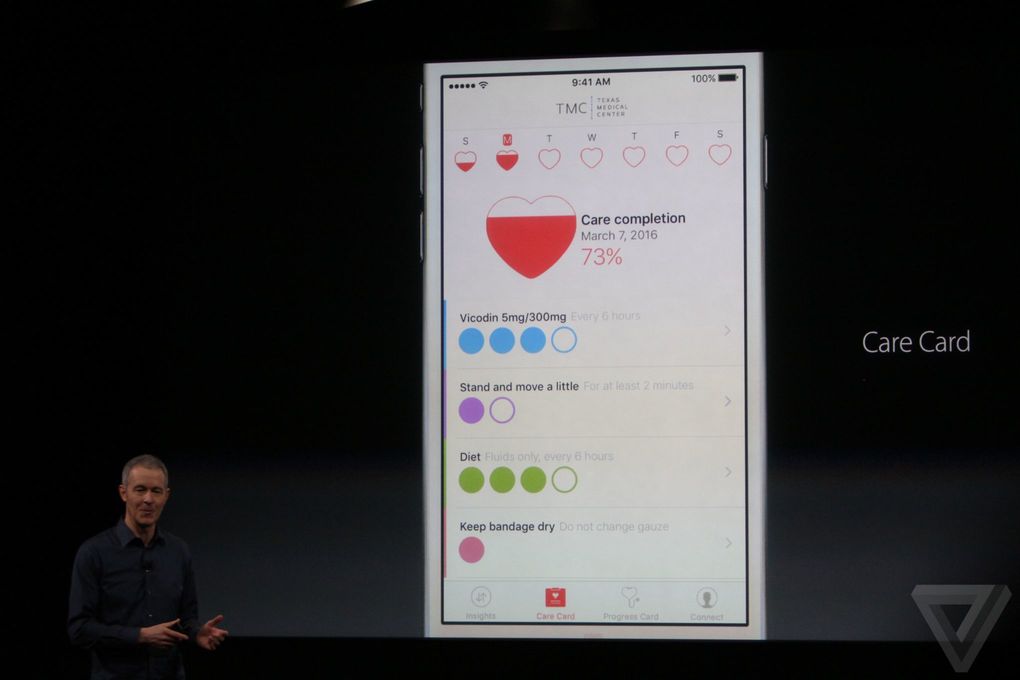
Apple announced today the launch of CareKit, a new open source software platform that allows people to develop their own health care apps. The software’s design is similar to that of Apple’s ResearchKit, a software platform that lets scientists run studies through apps available in the Apple app store. However, CareKit seems to be a distinct platform separate from ResearchKit. The software will be available in April.

CareKit was introduced by Apple’s COO Jeff Williams during the company’s “Loop you in” event today. He showed off an example of one of the apps created through the system that helps patients with Parkinson’s disease track the effectiveness of the drugs they’re taking or the exercise regimens they’re on. That app was developed by Sage Bionetworks and the University of Rochester using data gathered from mPower — an app developed through ResearchKit that gathers health data from people with Parkinson’s.
Other medical institutions have also developed apps using CareKit software. Texas Medical Center has created a post-operation check list according to Williams, that tracks patients symptoms and uses an accelerometer to measure their range of motion. And Beth Israel Deaconess Medical Center is helping patients with chronic health conditions store data from home monitoring devices.
CareKit is just another way that Apple is getting more involved in health care and medical research, after the company’s addition of the Health app. Those efforts have been met with mixed reviews. Almost immediately after Apple announced ResearchKit last year, experts had questions about how ethical the platform was. One month later, Apple announced that every ResearchKit app would have to be approved by an independent ethics board. Since then, the publicity surrounding the platform has been largely positive. Groups like IBM and Duke University either released new apps — some of which work on the Apple Watch — or expanded existing ones to serve people abroad. And in October, Apple announced that more than 100,000 participants had signed up for these studies.
– TheVerge

Leave a Reply